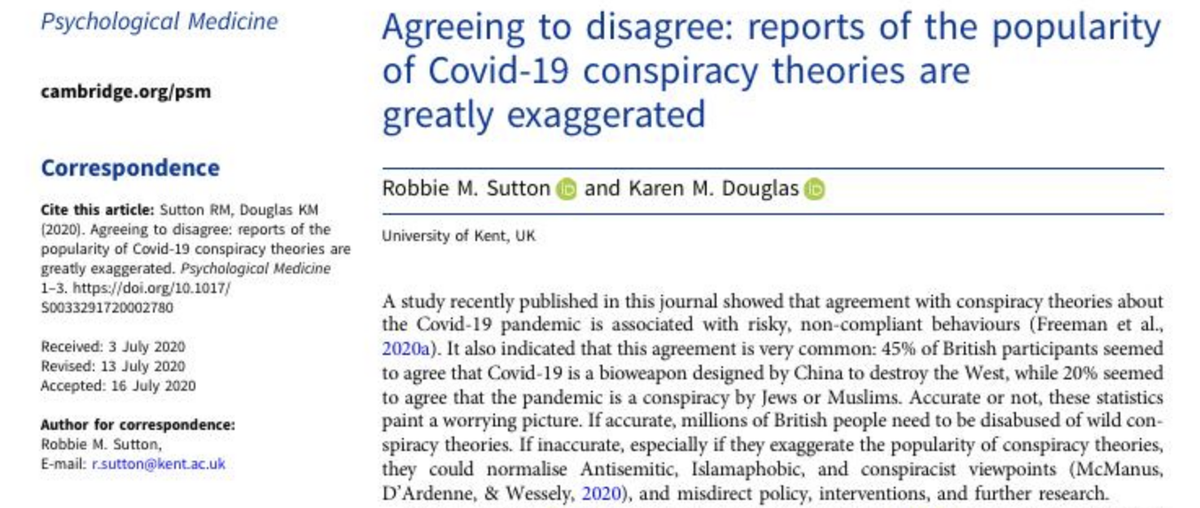When scientists measure belief in conspiracy theories, the way they ask participants to respond to questions is important (1/6) https://www.cambridge.org/core/journals/psychological-medicine/article/agreeing-to-disagree-reports-of-the-popularity-of-covid19-conspiracy-theories-are-greatly-exaggerated/20F4E5629FCF3595501A877A638A7B41
Referring to a recent English survey, you may remember headlines like “one fifth of English people in study blame Jews or Muslims for COVID-19… (2/6) https://www.newsweek.com/covid-19-conspiracy-theories-england-1505899
… and “one in five English people believe COVID is a Jewish conspiracy” (3/6) https://www.jpost.com/diaspora/antisemitism/one-in-five-english-people-believe-covid-is-a-jewish-conspiracy-survey-629187
We show that these estimates are exaggerated because of the way the survey measured conspiracy beliefs, with only one option for respondents to disagree (“do not agree”) and four to agree (“agree a little, “agree moderately”, “agree a lot”, and “agree completely”) (4/6)
Using scales more typical in this research, giving participants as many options to disagree as to agree, we found that only 0.4 – 0.8% and 0.8 – 1.6% of respondents agreed with the Jewish and Muslim conspiracy theories respectively (5/6)
Conspiracy theories are important and can influence people’s attitudes and behaviours. We therefore need to measure people’s belief in conspiracy theories carefully (6/6)

 Read on Twitter
Read on Twitter


